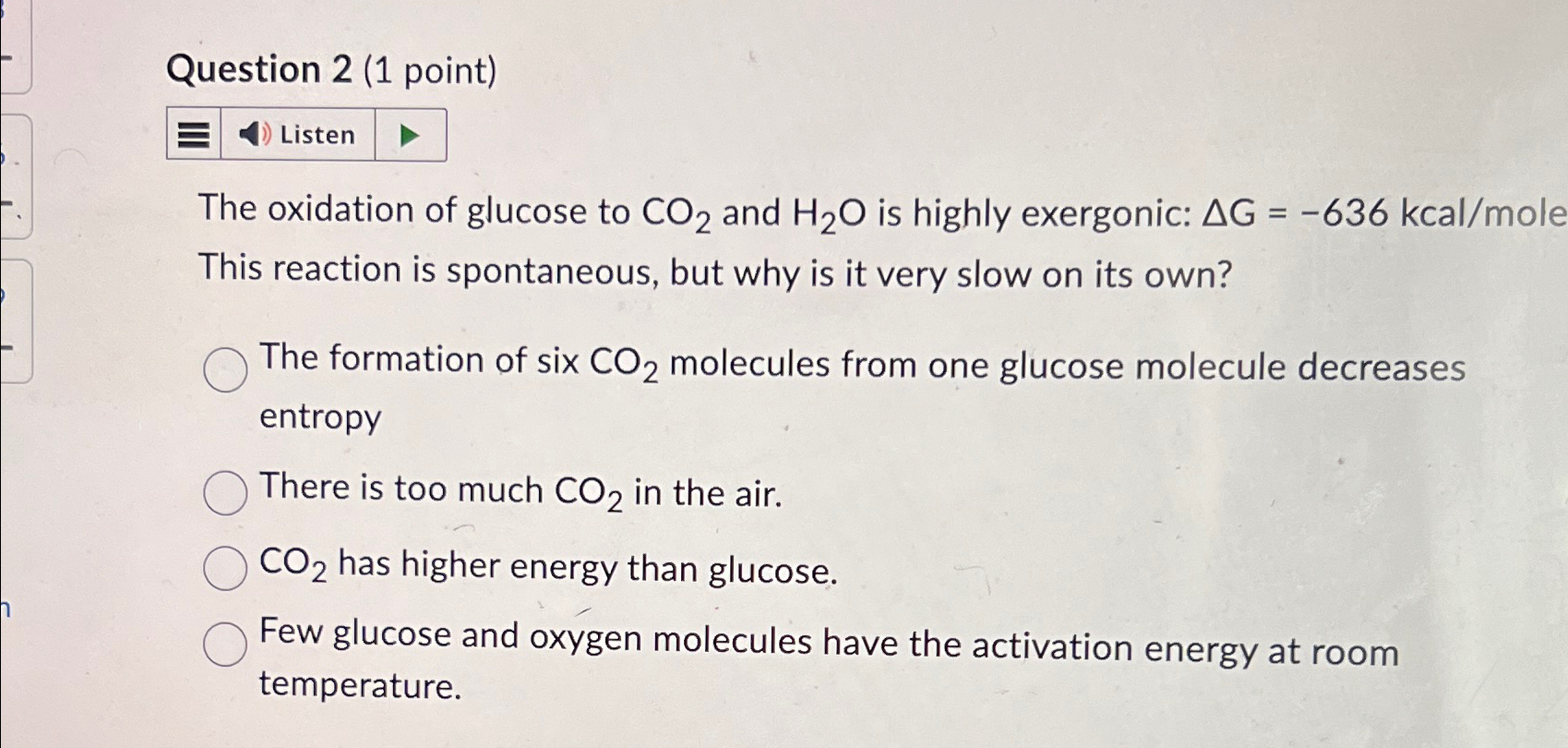Answered step by step
Verified Expert Solution
Question
1 Approved Answer
Question 2 (1 point) The oxidation of glucose to CO_(2) and H_(2)O is highly exergonic: Delta G=-636kca(l)/(m)ole This reaction is spontaneous, but why is it
Question 2 (1 point)\ The oxidation of glucose to
CO_(2)and
H_(2)Ois highly exergonic:
\\\\Delta G=-636kca(l)/(m)oleThis reaction is spontaneous, but why is it very slow on its own?\ The formation of six
CO_(2)molecules from one glucose molecule decreases entropy\ There is too much
CO_(2)in the air.\
CO_(2)has higher energy than glucose.\ Few glucose and oxygen molecules have the activation energy at room temperature.

Step by Step Solution
There are 3 Steps involved in it
Step: 1

Get Instant Access to Expert-Tailored Solutions
See step-by-step solutions with expert insights and AI powered tools for academic success
Step: 2

Step: 3

Ace Your Homework with AI
Get the answers you need in no time with our AI-driven, step-by-step assistance
Get Started


